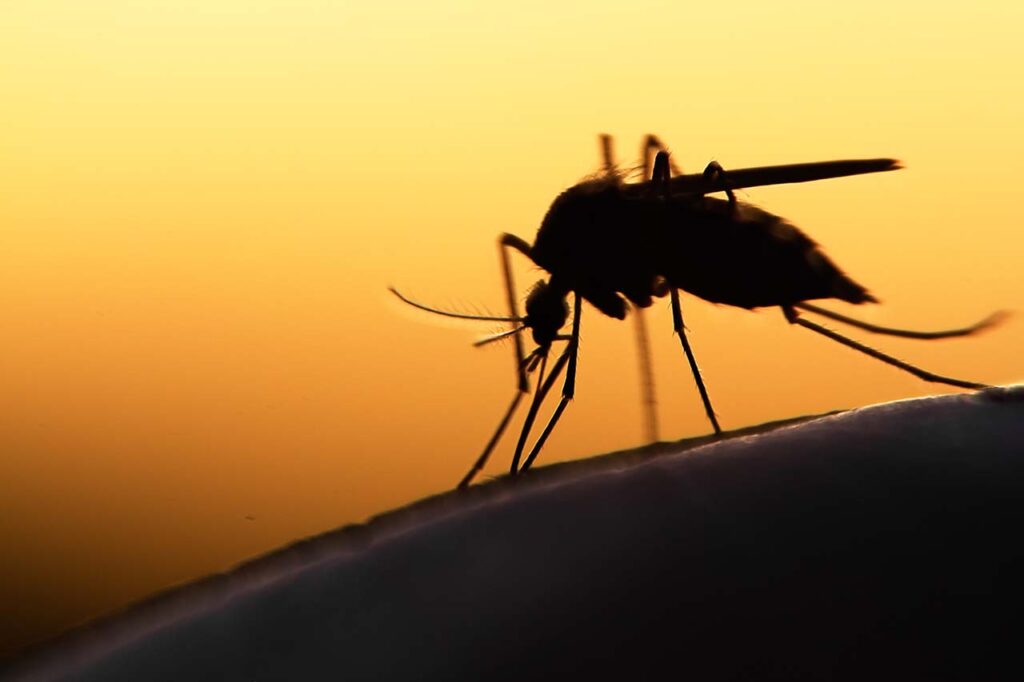Plasmo detect: diagnosing malaria with a single click, or almost...
After winning the Montpellier Innovation Booster award in 2024, researcher Grégoire Pasquier is about to finalize a new application capable of accurately detecting the type and severity of malaria from a blood smear... using a smartphone.

A university hospital practitioner and researcher at the Migevec laboratory, Grégoire Pasquier came up with the concept using the Pl@ntNet app, which identifies plants from a photo catalog. Since 2021, alongside his thesis on the involvement of Schizophyllum commune in human pathology, he has been working on Plasmo detect, an application capable of detecting malaria as early as possible and in all its forms via a smartphone adapted to a microscope. "Currently, the gold standard method for diagnosing malaria is microscopy using what is known as a blood smear. But it takes a lot of expertise to determine which of the five existing species of parasites is causing the disease and at what stage it is. With Plasmo detect, we hope to automate this process using artificial intelligence that classifies images," explains Grégoire Pasquier.
30,000 blood smear images
Initially, he and the computer scientist assisting him photographed and annotated nearly 30,000 images of blood smears from people infected with different species of Plasmodium. This catalog is essential for identifying the species, but also for establishing the parasitemia, which corresponds to the percentage of infected red blood cells. "Above 4% is considered severe," adds the researcher. "At the moment, we are able to identify the correct species in 80% of cases. According to the criteria in the World Health Organization (WHO) quality manual, we are at level 2. To reach level 1, we need to achieve 90%. So we are currently working on improving the performance of the algorithm and the app," summarizes Grégoire Pasquier.
To achieve this, the team is currently expanding the photographic database and annotating the images already available to include the parasitic stages detected on each blood smear. "We can go into even more detail than we have done so far, " says the scientist, who hopes to see better results in the short term.
Large-scale testing
Winner of the Montpellier Innovation Booster (BIM), a support program run by the University Innovation Cluster (PUI), Plasmo detect has secured €30,000 in funding to continue its efforts and develop a reliable, usable application by 2027. Next year, a master's student specializing in artificial intelligence will join the team. Grégoire Pasquier also plans to invest part of this money in a more powerful computer and a high-precision camera.
Thanks to BIM workshops dedicated to start-up creation, the project leader was also able to receive training in entrepreneurship. "This opens up some interesting prospects, "he emphasizes. In the coming weeks, the application could already be handed over to a telemedicine company, which will be able to test it on a large scale. "We have just signed a confidentiality agreement, so things are looking very promising."
260 million people affected
On November 25, the founder of the Plasmo detect project also represented the PUI at the Starthèse ceremony, which took place in Lyon. This was an opportunity for Grégoire Pasquier to familiarize himself once again with entrepreneurship and for the University of Montpellier to promote innovative projects that address potentially serious and pressing health issues.
Malaria affects nearly 260 million people worldwide each year and kills nearly 600,000. Most of the cases reported are in sub-Saharan Africa, "where few people are trained to read blood smears, " the researcher explains. By 2027, Plasmo detect could therefore facilitate diagnosis, guide treatment much more quickly, and perhaps even save lives.